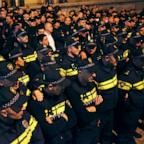What site of suspected chemical attack in Syria looks like 10 days later: Reporter's Notebook
Inspectors have finally been allowed on site.
BEIRUT -- Bombed-out shells that were once buildings, and dusty streets scattered with rubble: another Syrian neighborhood in ruins.
But this place is Douma and, for over a week, it has been at the center of the latest chapter in Syria's grim seven-year war. Chemical inspectors were finally being allowed in today to collect evidence of a suspected chemical attack, according to Syrian state media.
The United States and its allies say the Syrian regime bombed this place with some kind of chemical weapon, possibly chlorine. It may have even been laced with sarin, they say, an even more lethal nerve agent.
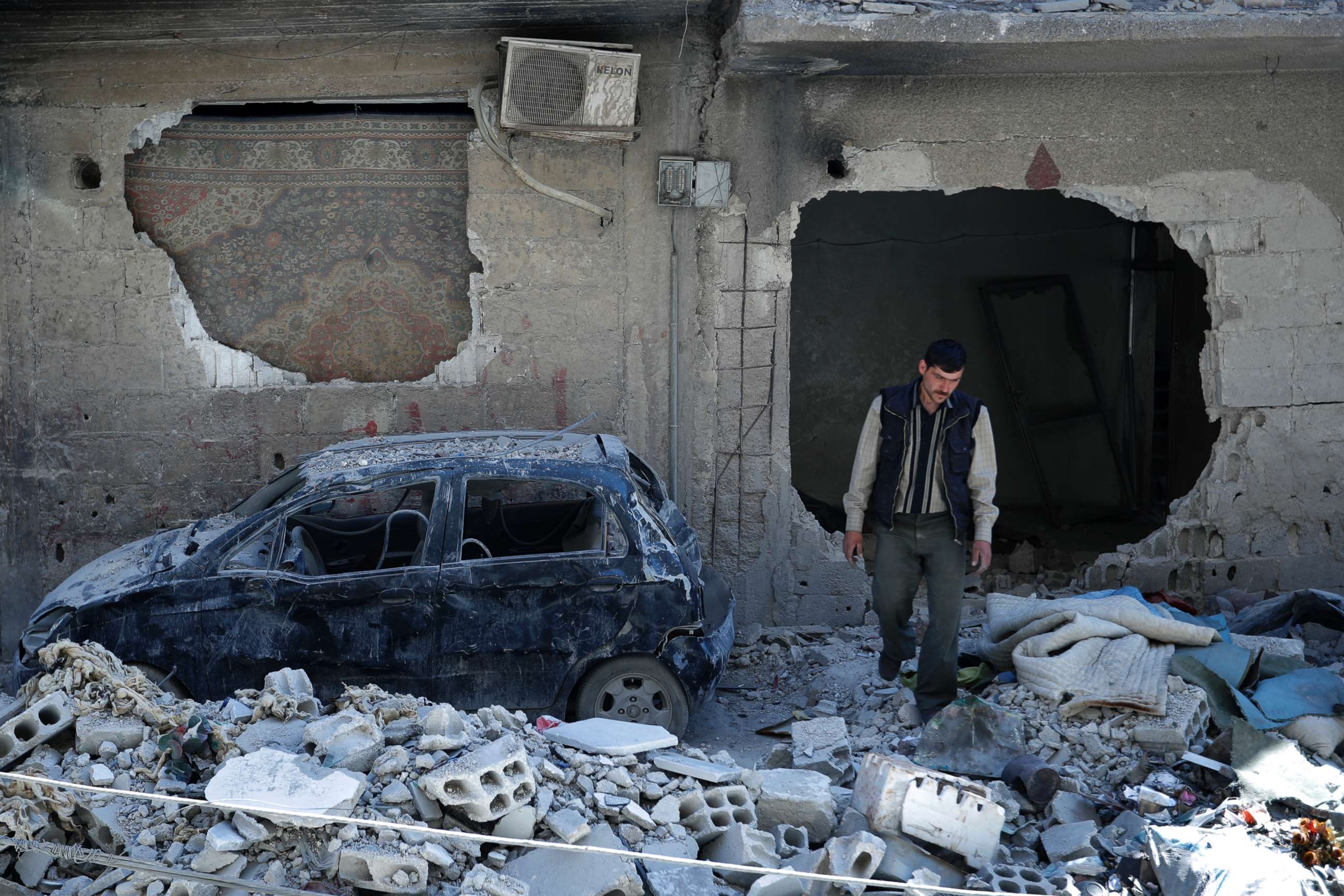
The suspected attack, for which Syria has denied responsibility, prompted coalition rockets to hit three targets last week around the country where chemicals were thought to have been developed and stored. Russia says the whole incident was staged by Western intelligence agencies.
The Organization for the Prohibition of Chemical Weapons (OPCW), the international chemical weapons watchdog, was invited to visit the site to collect evidence, although Russia and Syria blocked their access for days. But some media organizations, including ABC News, were allowed in.
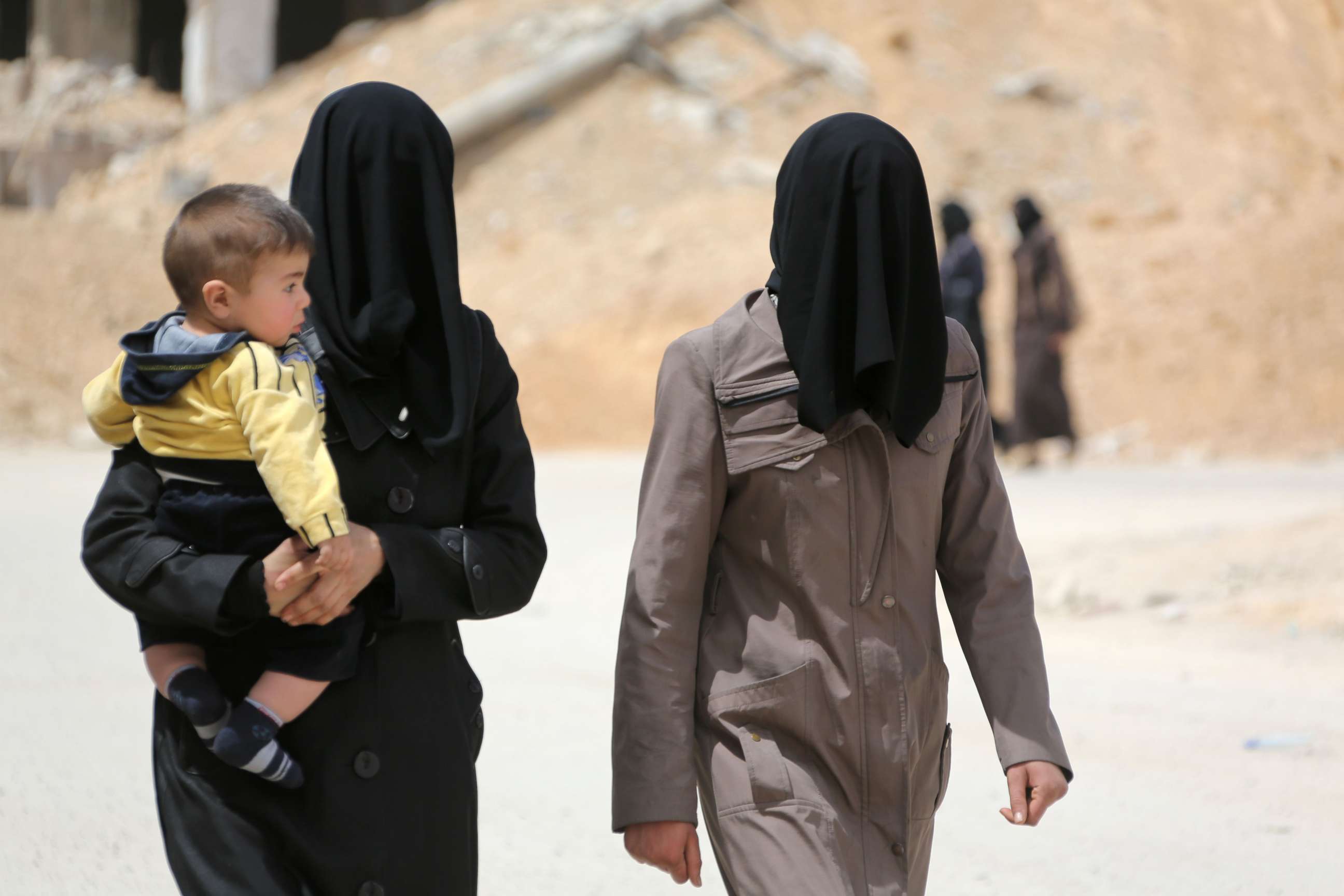
One resident said a friend of his was wounded in the suspected chemical attack. "They said that there was a chlorine attack,” he told ABC News. “Everyone started to hide and didn't know what to do. What happened, no one knew. They started saying that there were 45 killed in the building where my family was. We wanted to go, but no one let us. No one let us come here at all."
He lost 10 members of his family, and was told they'd been buried, the man said. Others had harsh words for the rebel factions that controlled this place, saying they were not allowed to leave the area and lived in misery.
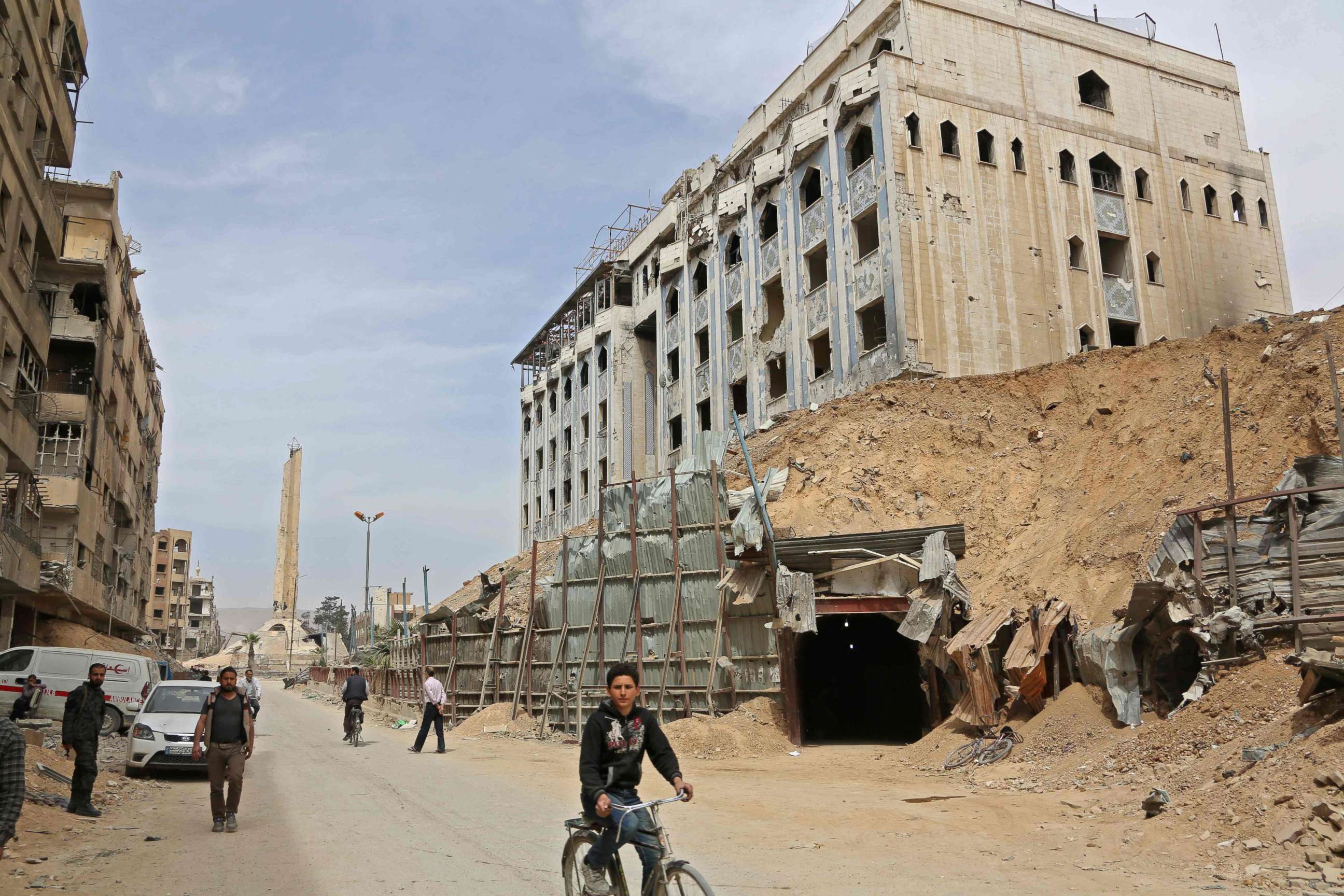
Those who have since been evacuated have recounted their experiences from the relative safety of Turkish refugee camps; entire families huddled in basements in Douma as a yellow gas-like substance seeped down into where they hid.
Struggling for breath, many were unable to make it outside, they said. Vomiting, the inability to control their limbs and foaming at the mouth are symptoms of toxic poisoning.
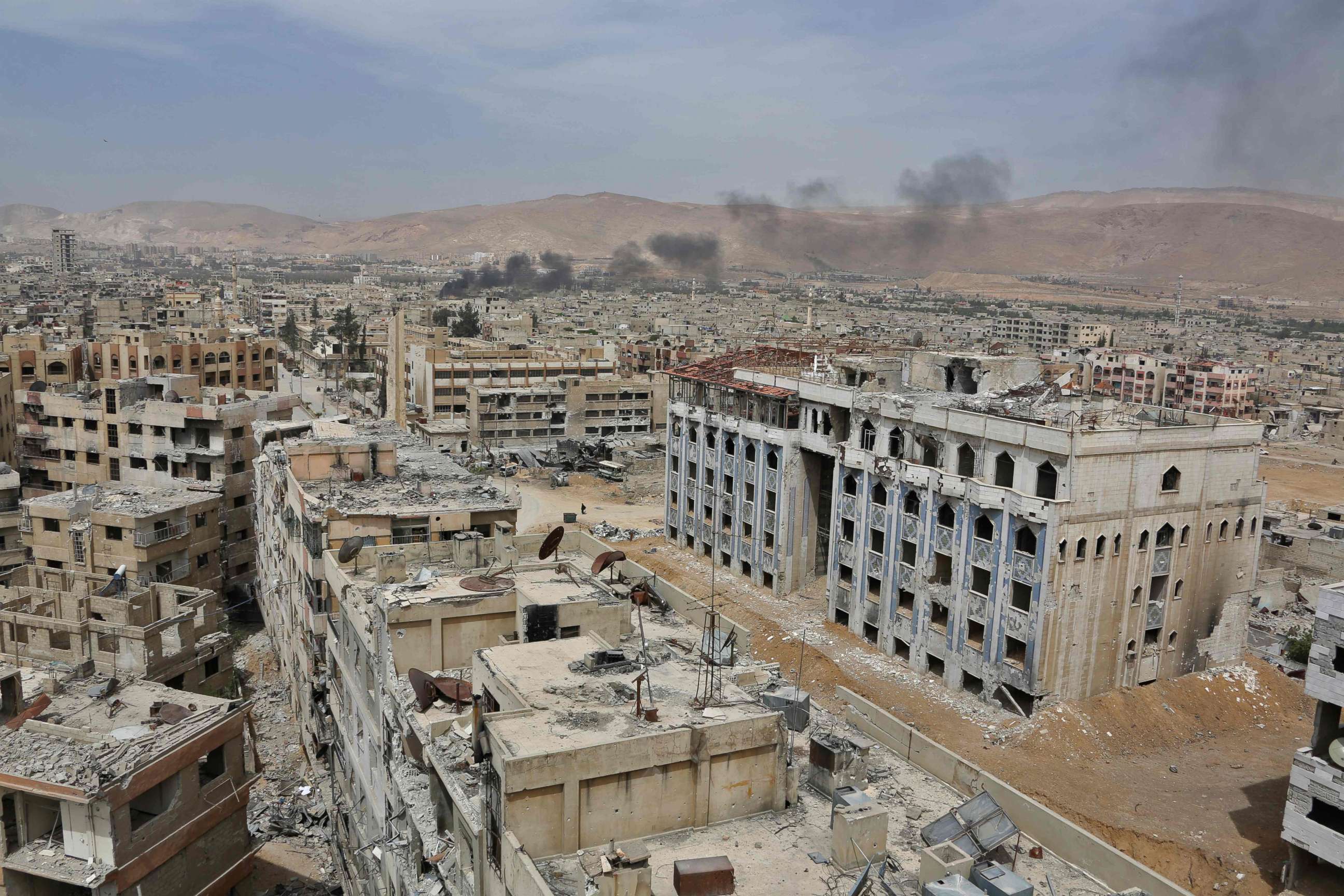
ABC News was given access to the rooms in which the world saw children struggling for breath and being doused in water, now quiet and still. It’s difficult to imagine the horror it saw.
Journalists were also able to access the broken-down bedroom in which a rocket once lay on the bed, the rocket now gone.
Critics warn that such scenes suggest the regime could have tampered with the site; the witnesses they provide already screened for views in keeping with Syria's version of events.
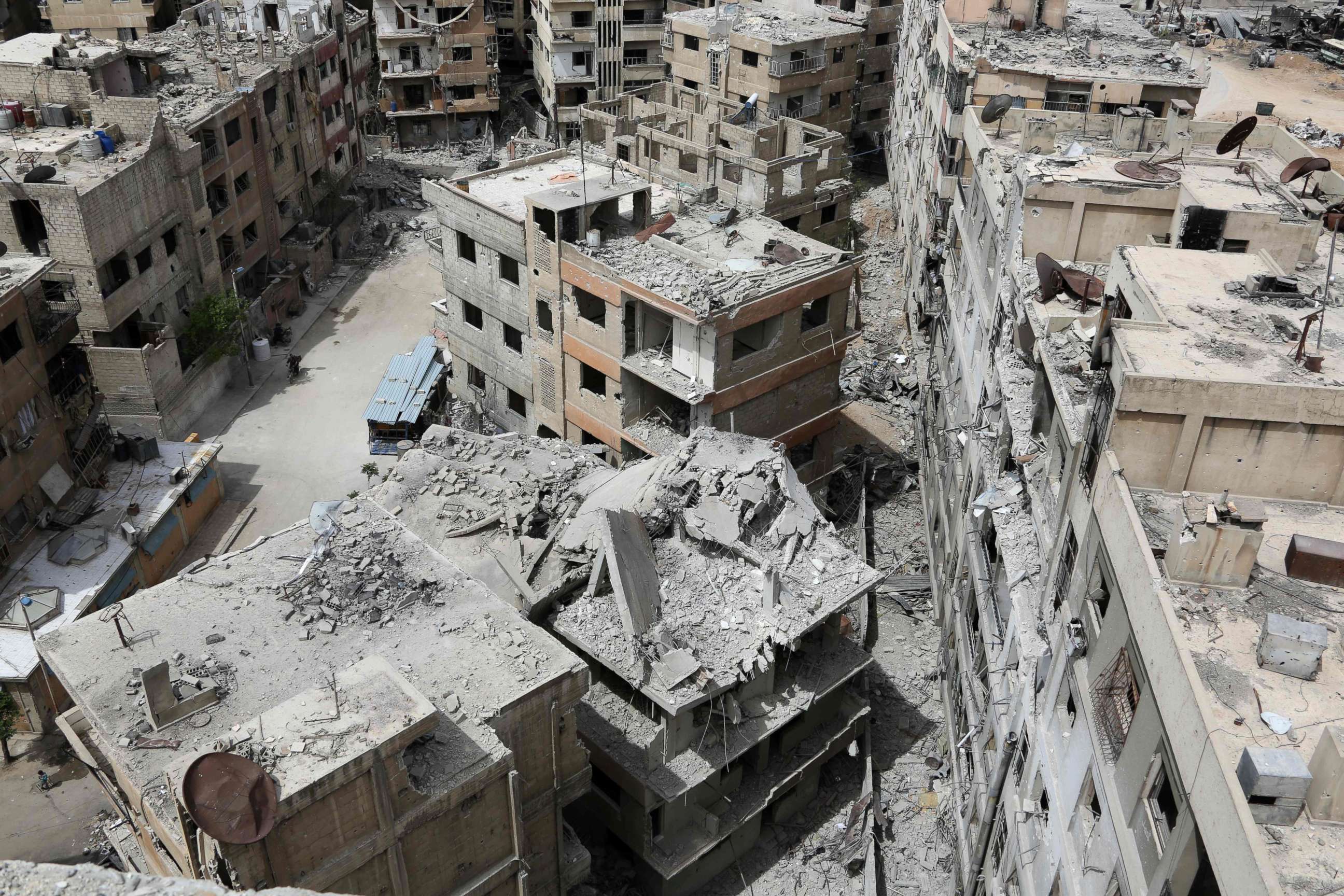
Now, 10 days since the attack, the OPCW has its promised access to Douma, according to Syrian state media. Britain has already alleged Russia may have tampered with important evidence as time passed.
Whatever evidence they do gather, a formal investigation into what happened here, and the possibility of naming those responsible, has already been blocked.
Russia vetoed that plan at the U.N. Security Council last week.
